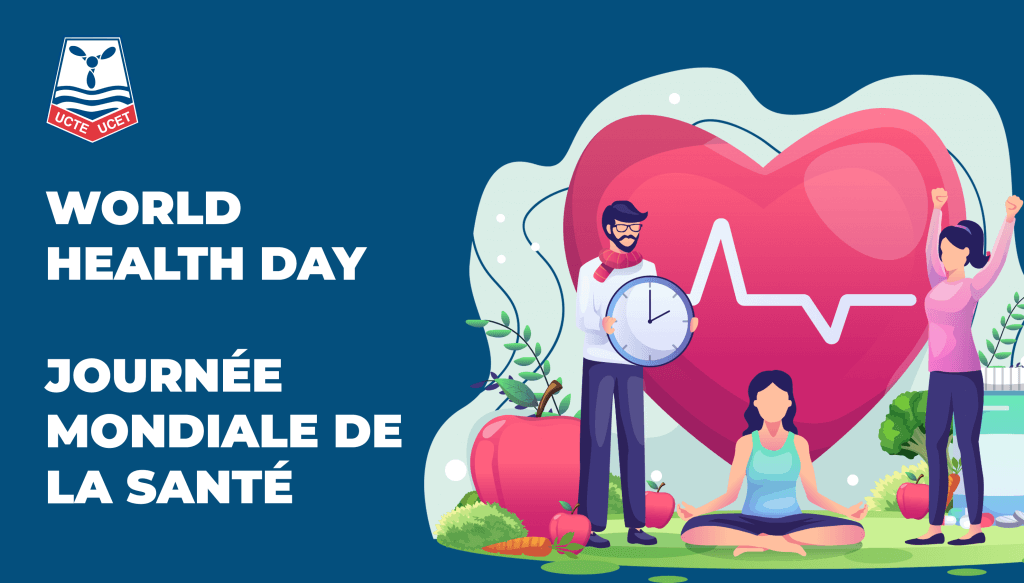World Health Day — Balancing Mental and Physical Health
World Health Day, April 7, is celebrated each year to commemorate the anniversary of the founding of the World Health Organization (WHO) in 1948. This year, UCTE offers advice on how to take care of your mental and physical health, two elements interrelated for absolute well-being.
For the last two years, all ‘normal’ habits have had to be abandoned and new ways adopted — health measures, frontline work, working from home, etcetera. Every day, restrictions imposed by governments have changed, and people been forced to adapt accordingly.
Previously, routines were based on individual lifestyles. Some found it more difficult to adapt. We need to be careful about our mental and physical health, which can deteriorate as a result of these changes. Finding balance is the key. Physical health and mental health constitute overall health.
A person’s health will determine their ability to cope with the demands of everyday life. Many people feel frustration and a sense of imbalance. The seven tips put forward by the Mental Health Movement include: acting out; feeling; accepting; recharging; discovering; choosing and connecting.[1]
We at times fail to acknowledge that we have ignored our health while prioritizing other aspects of our lives. It is important to understand the link between mind and body, and to be at our best in all areas of our lives. Balance is the pillar of well-being. Here are some tips to help you adapt to change:
- STAY IN TOUCH: Stay close despite the distance. Loneliness has been our only companion since the beginning of the pandemic. It has been more difficult to keep in touch. We must find new ways to communicate in order to keep socially active.
- STRUCTURE YOUR DAY: At times, it may seem trivial to plan out the day, but this may help push you to set goals and move forward. You will then be more productive and will know the satisfaction of achievement.
- MEDITATE: For those of you who are constantly under stress at work or at home, setting aside electronic devices and other distractions and taking 15 minutes a day to listen to your breathing, can help you deal with the rest of the day’s demands.
- MOVE: Walking, cycling, yoga practice, or another physical activity can help your body release a lot of the stress that you may not be aware of.
- TAKE CARE OF YOURSELF: Whatever elements of your routine facilitate your well-being, employ them at least once a day, taking a moment for yourself.
In short, these five recommendations can be part of your new routine, no matter how much change you are facing — you will have your own points of reference. Having to constantly adapt to new situations is exhausting and disruptive. For this reason, you need to take the time to focus on your physical and mental health and to be prepared for the challenges that have become part of daily life.
[1] https://www.lecourrierdusud.ca/la-sante-mentale-aussi-importante-que-la-sante-physique/
